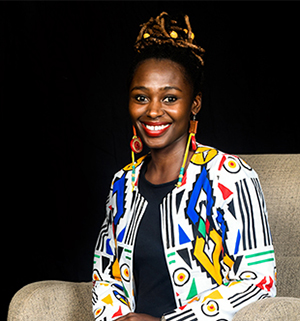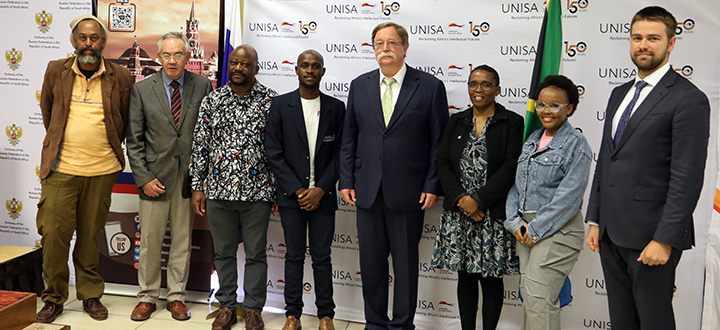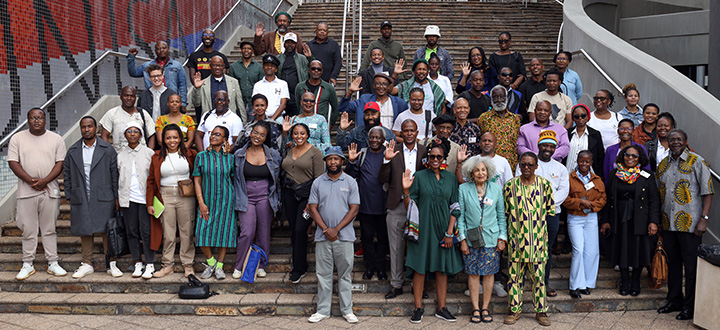College of Human Sciences
Young imbokodo academic gets estimable recognition

Dr Lebohang Motsomotso, recipient of the 2021 Unisa Youngest Female Doctoral Graduate Award
A passionate and self-disciplined academic, Dr Lebohang Motsomotso of the Department of Political Sciences in the College of Human Sciences recently bagged the 2021 Unisa Youngest Female Doctoral Graduate Award. The Research and Innovation awards ceremony took place virtually on 6 August 2021. The recognition came at a significant time when the country commemorates Women’s Month, the month of #Imbokodo.
Motsomotso says: "As a young academic, it means that I have to continue working hard, especially as the institution I work for has acknowledged this academic achievement on such a prestigious level." According to her, it also means that she needs to set and achieve research goals that will lead her in the direction of being an established researcher in her field.
"On a personal level," Motsomotso continues, "completing my PhD was a key milestone, so this award is an affirmation that there are people watching what you are doing."
Passionate about following her calling
Motsomotso holds a PhD in Political Science from the University of Pretoria. Speaking about her passion for the field of political science, she says: "I first registered for a BA in Audiovisual Communication at the University of Johannesburg. One of my modules was philosophy, which I was really interested in and it introduced me to political philosophers. As I asked political science students how the course was, my interest grew."
Two years into her undergraduate studies, Motsomotso changed degrees to a BA in Politics and International Relations. "I never looked back and felt that politics found me."
Motsomotso’s research interests are in decolonial thought, political theory, liberation movements, prison writing, and African women writings and narratives.
She says: "My PhD focused on the self-writing of the lived experiences of Dr Winnie Madikizela-Mandela and Assata Shakur. The study focused on three themes: torture, authorisation and liberation." She adds: "The themes were discussed through narrative and thematic analysis that aims at emphasising how the text can be analysed through meaning, symbols and patterns."
For Motsomotso, it is through these themes that the significance of self-writing engages and facilitates the narrative accounts of Shakur and Madikizela-Mandela. Her thesis explored the intersectional structures of oppression, which were formed by colonial and racist systems.
Inspiring researchers and women
Motsomotso encourages those who want to build a career in research to read in order to stay informed. "It is important to be updated on your field of research. Self-discipline and motivation are also key to achieve your goals," she says.
She remarks: "Women should know that alone you cannot change the world, but you can cast a stone across the waters to create many ripples." She concludes: "Together through uplifting each other, we can create change."
* By Nancy Legodi, Acting Journalist, Department of Institutional Advancement
Publish date: 2021-08-11 00:00:00.0

 Unisa's student leadership engage with Russian ambassador
Unisa's student leadership engage with Russian ambassador
 Re-igniting and re-imagining Pan Africanism, Afrocentricity and Afrofuturism in the 21st century
Re-igniting and re-imagining Pan Africanism, Afrocentricity and Afrofuturism in the 21st century
 Young Unisa science stars join elite Lindau Nobel Laureate group
Young Unisa science stars join elite Lindau Nobel Laureate group
 Education MEC addresses Unisa autism seminar
Education MEC addresses Unisa autism seminar
 Seven Unisans nominated for the NSTF-South32 Awards 2023/2024
Seven Unisans nominated for the NSTF-South32 Awards 2023/2024